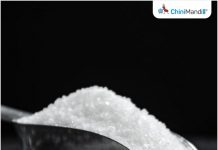Beverage consumption in South Korea has seen a noticeable rise over the past five years, with the average daily intake increasing by more than 20%. While adults tend to prefer sugar-free coffee, particularly Americano, younger age groups—especially teenagers and people in their 20s and 30s—continue to consume a high volume of sugary carbonated drinks.
On June 9, the Korea Disease Control and Prevention Agency (KDCA) released findings from the National Health and Nutrition Examination Survey, which analyzed beverage consumption patterns from 2019 to 2023. The study categorizes beverages—defined as liquid foods primarily for hydration—into sugar-free and sugar-added, based on the presence of added sugars or liquid fructose.
In 2023, the average Korean aged one and older consumed 274.6 grams of beverages per day, up from 223.5 grams in 2019. Men consumed more than women on average—300.0 grams compared to 247.2 grams. By age group, individuals in their 30s had the highest intake, averaging 415.3 grams per day. Those in their 20s and 40s also reported drinking more than 1.5 cups daily, based on a 200ml serving size.
Looking at specific trends by age, adults over 20 favored sugar-free coffee, such as Americano, while teenagers were the biggest consumers of sugary sodas. Children under the age of 10 primarily drank fruit and vegetable juices. Notably, teenagers recorded the highest average sugar intake from beverages—16.7 grams per day—among all age groups.
The KDCA warned that individuals who regularly consume beverages, particularly those with added sugars, are up to twice as likely to exceed recommended daily sugar limits compared to non-consumers. For children and adolescents, the risks are especially concerning, as excessive intake of sugary drinks can contribute to obesity and chronic health issues later in life.
KDCA Director Jee Young-mee expressed concern over the upward trend in beverage consumption. “The intake of sugar-added beverages by young people has long-term implications for their health. It’s important that schools, families, and policymakers work together to address this issue,” she said. She also recommended that adults prioritize drinking water over other beverages for daily hydration.

















